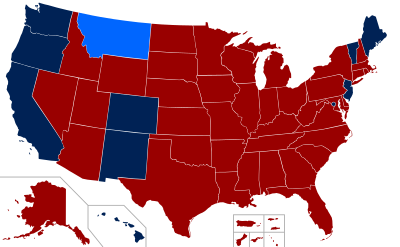
1 In its 2009 decision Baxter v. Montana, the Montana Supreme Court ruled that assisted suicide did not violate Montana legal precedent or state statutes, even though no Montana laws specifically allowed it.
In the United States, the term "assisted suicide" is typically used to describe what proponents refer to as medical aid in dying, in which a terminally ill adult is prescribed and self-administers barbiturates if they feel that they are suffering significantly. The term is often used interchangeably with physician-assisted suicide (PAS), "physician-assisted dying", "physician-assisted death", "assisted death" and "medical aid in dying" (MAiD).
Assisted suicide is similar to but distinct from euthanasia (sometimes called "mercy killing"). In cases of euthanasia, another party acts to bring about the person's death in order to end ongoing suffering. In cases of assisted suicide, a second person provides the means through which the individual is able to voluntarily end their own life, but they do not directly cause the individual's death.
As of 2024, Physician-assisted suicide, or "medical aid in dying", is legal in eleven US jurisdictions: California, Colorado, the District of Columbia,[1] Hawaii, Montana, Maine,[2] New Jersey,[3] New Mexico, Oregon, Vermont, and Washington.[4] These laws (excluding Montana where there is no explicit legislation) state that "actions taken in accordance with [the Act] shall not, for any purpose, constitute suicide, assisted suicide, mercy killing or homicide, under the law". This distinguishes the legal act of "medical aid in dying" from the act of helping someone die by suicide, which is prohibited by statute in 42 states and prohibited by common law in an additional six states and the District of Columbia.[5] A 2018 poll by Gallup displayed that a majority of Americans, with 72 percent in favor, support laws allowing patients to seek the assistance of a physician in ending their life.[6] Nevertheless, assisted suicide remains illegal in a majority of states across the nation.
In 2022, the state of Oregon ruled it unconstitutional to refuse assisted suicide to people from other states who are willing to travel to Oregon to die that way, effectively giving out of state residents the opportunity to die by physician-assisted suicide.[7] Before someone travels to Oregon to die by physician assisted suicide, those helping the patient travel to Oregon might be prosecuted for assisting a suicide. After the barbiturates are acquired, if the patient returns to their home state, those assisting with mixing the fatal dose of barbiturates may be prosecuted for assisting a suicide. Vermont removed its residency requirement for people to take advantage of its medically assisted suicide law in 2023 to settle a lawsuit.[8]
The punishment for participating in physician-assisted death varies throughout the other states. The state of Wyoming does not "recognize common law crimes and does not have a statute specifically prohibiting physician-assisted suicide". In Florida, "every person deliberately assisting another in the commission of self-murder shall be guilty of manslaughter, a felony of the second degree".[9]
- ^ "D.C. physician-assisted suicide law goes into effect". The Washington Times. Archived from the original on April 1, 2024. Retrieved February 18, 2017.
- ^ "Governor Mills signs 'Death with Dignity' bill". June 12, 2019. Archived from the original on April 3, 2024. Retrieved June 13, 2019.
- ^ "'Aid-in-Dying' Bill Becomes Law in New Jersey". governing.com. April 15, 2019. Archived from the original on September 3, 2023. Retrieved April 15, 2019.
- ^ "Physician-Assisted Suicide". Ithaca, New York: Cornell Law School. March 2024.
- ^ "Assisted Suicide Laws in the United States". Patients Rights Council. February 6, 2012. Archived from the original on September 11, 2017. Retrieved December 1, 2016.
- ^ Brenan M (May 31, 2018). "Americans' Strong Support for Euthanasia Persists". Gallup. Archived from the original on September 23, 2023. Retrieved November 21, 2019.
- ^ Johnson G (March 29, 2022). "Oregon ends residency rule for medically assisted suicide". KATU. Associated Press. Archived from the original on January 11, 2024. Retrieved March 29, 2022.
- ^ Vermont allows out-of-staters to use assisted suicide law Archived October 30, 2023, at the Wayback Machine, Associated Press, May 2, 2023
- ^ "Assisted Suicide Laws in the United States | Patients Rights Council". www.patientsrightscouncil.org. Archived from the original on September 11, 2017. Retrieved October 17, 2017.